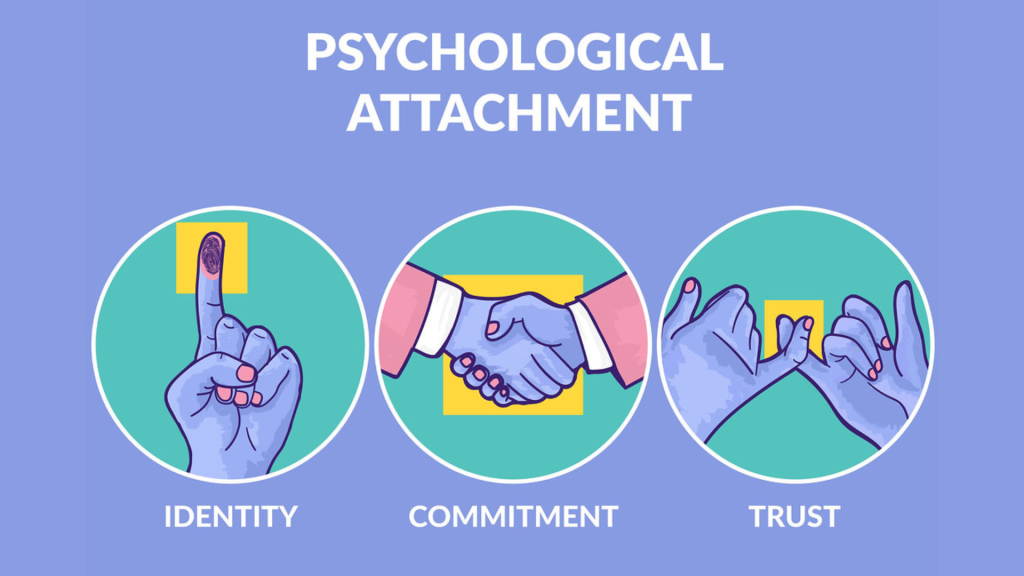
Embarking on the intricate journey of adult relationships requires navigating the complex terrain of attachment styles—a blueprint etched in the early bonds with primary caregivers. As we unravel the profound impact of attachment theory on our emotional connections, this guide delves into the nuances of secure and insecure attachment styles, shedding light on how they shape adult relationships. Whether you’re seeking to understand your own behavior or decode the patterns in your partner, recognizing attachment styles is the compass to fostering healthier, more fulfilling connections.
Understanding Attachment: Foundation of Emotional Connection
- The Attachment Bond:
Attachment, rooted in the emotional connection forged with primary caregivers during infancy, serves as a precursor to how individuals engage with intimacy throughout their lives. Pioneered by Bowlby and Ainsworth, attachment theory underscores the link between early bonding experiences and adult relationship dynamics.
- Secure Attachment vs. Insecure Attachment:
The quality of the caregiver-infant relationship lays the groundwork for secure or insecure attachment. Secure attachment fosters self-confidence, trust, and adept conflict management, while insecure attachment may manifest as difficulty understanding emotions, shying away from intimacy, or clinging behavior.
Attachment Styles Unveiled: The Four Main Types
- Secure Attachment Style:
- Traits and Characteristics:
Empathetic, set boundaries, feels secure and satisfied in relationships.
- Impact on Adult Relationships:
Thrives in meaningful connections, comfortably expresses feelings, resilient in the face of challenges.
- Ambivalent (Anxious-Preoccupied) Attachment Style:
- Traits and Characteristics:
Needy, anxious, struggles with trust and self-esteem.
- Impact on Adult Relationships:
Craves closeness but fears rejection, difficulty observing boundaries, relies heavily on a partner for reassurance.
- Avoidant-Dismissive Attachment Style:
- Traits and Characteristics:
Independent, uncomfortable with emotional intimacy, values freedom.
- Impact on Adult Relationships:
Withdraws from emotional closeness minimizes partner’s feelings, seeks independence in relationships.
- Disorganized/Disoriented Attachment Style:
- Traits and Characteristics:
Fearful-avoidant experiences intense fear, struggles with self-worth.
- Impact on Adult Relationships:
Swings between extremes of love and hate exhibit antisocial behavior, and finds it challenging to establish a sense of security.
Causes of Insecure Attachment: Unraveling the Threads
- Parental Factors:
- Young or inexperienced caregivers.
- Caregiver’s depression or addiction.
- Traumatic experiences or physical neglect.
- Environmental Factors:
- Frequent moves or placements.
- Separation from primary caregiver.
- Inconsistency in caregiving.
Building a Secure Foundation: Overcoming Insecure Attachment
- Therapy as a Catalyst:
Seek individual or couples therapy with a focus on attachment theory to understand and transform your attachment style.
2. Self-Help Strategies:
- Enhance nonverbal communication skills.
- Boost emotional intelligence for effective expression and empathy.
- Develop relationships with securely attached individuals.
- Address and resolve childhood trauma.
In the tapestry of adult relationships, attachment styles weave a narrative that influences how we connect, love, and navigate life’s intricacies. Armed with self-awareness and the tools to reshape attachment patterns, individuals can embark on a journey toward secure, resilient, and gratifying connections. By unraveling the threads of insecure attachment, we pave the way for the emergence of healthier, more fulfilling relationships, where intimacy is embraced, and vulnerabilities are met with understanding and compassion.





